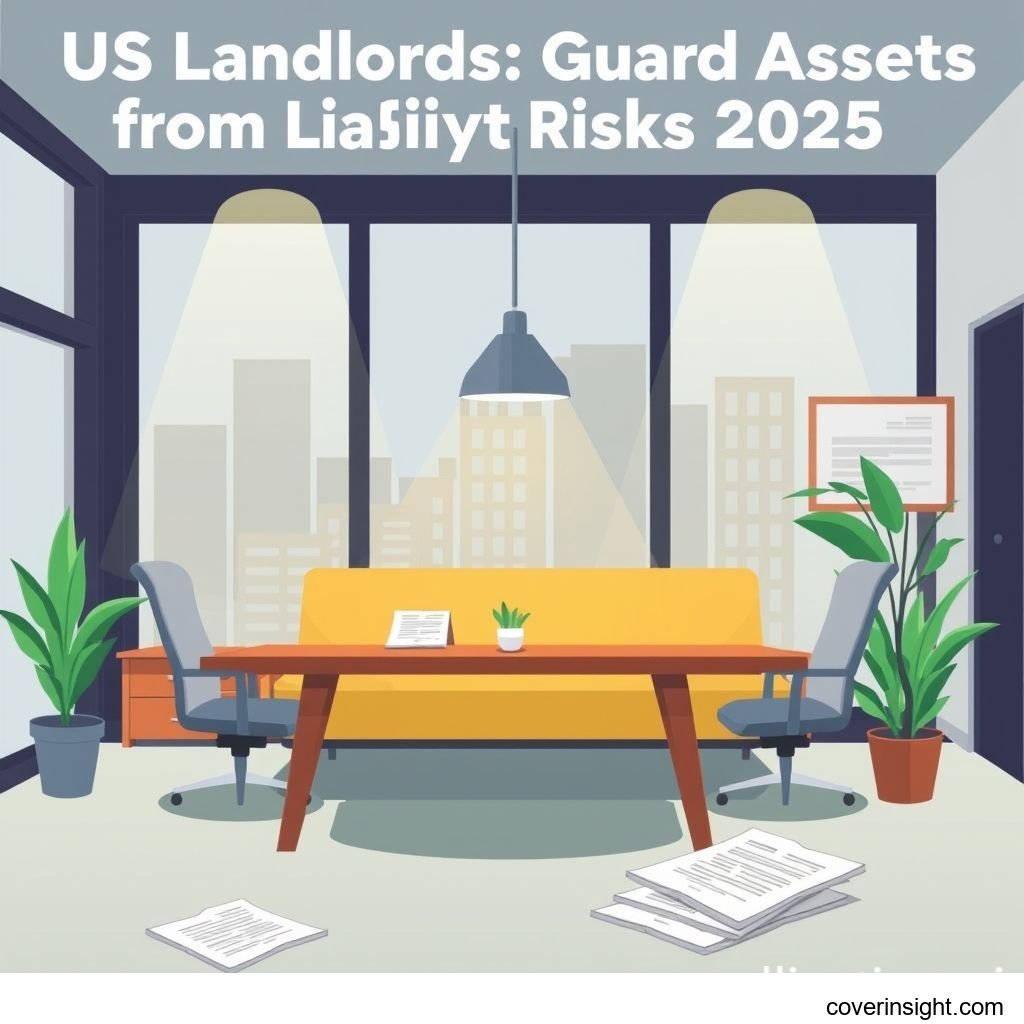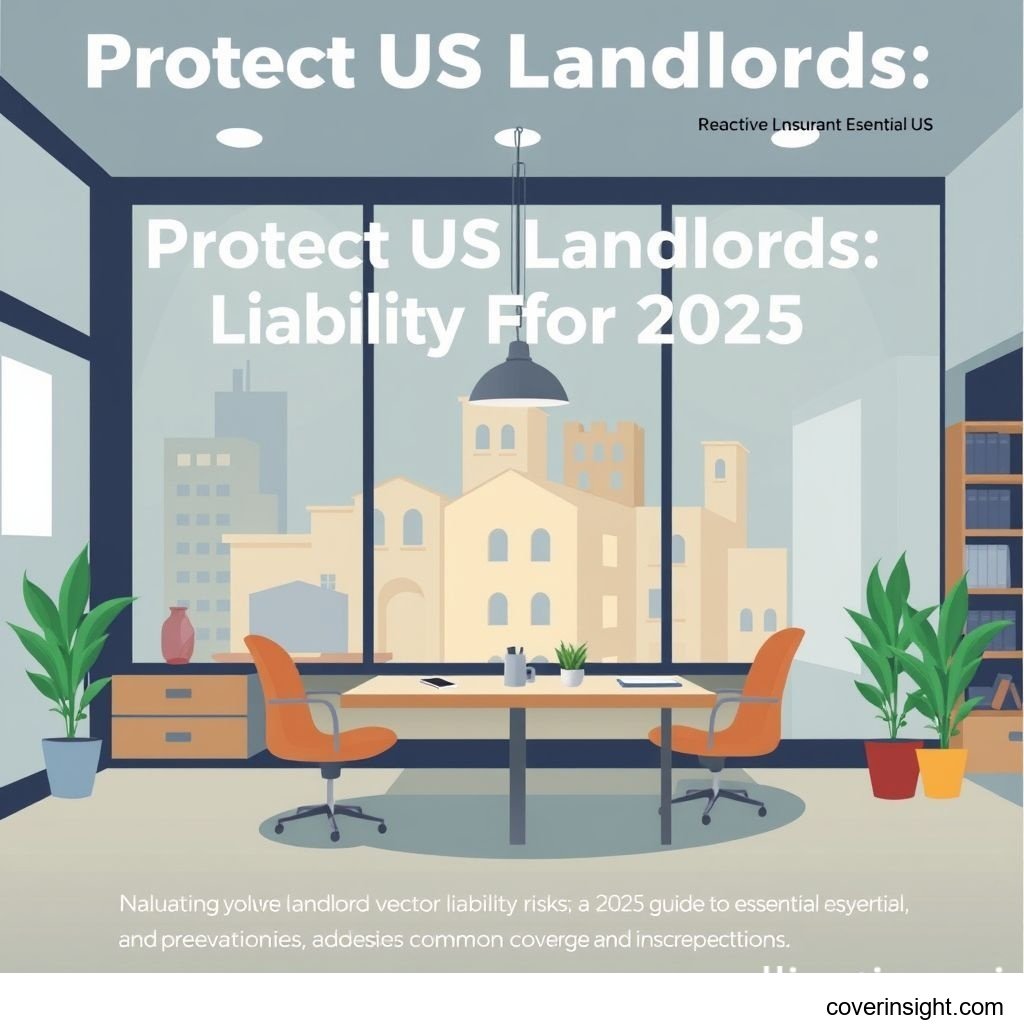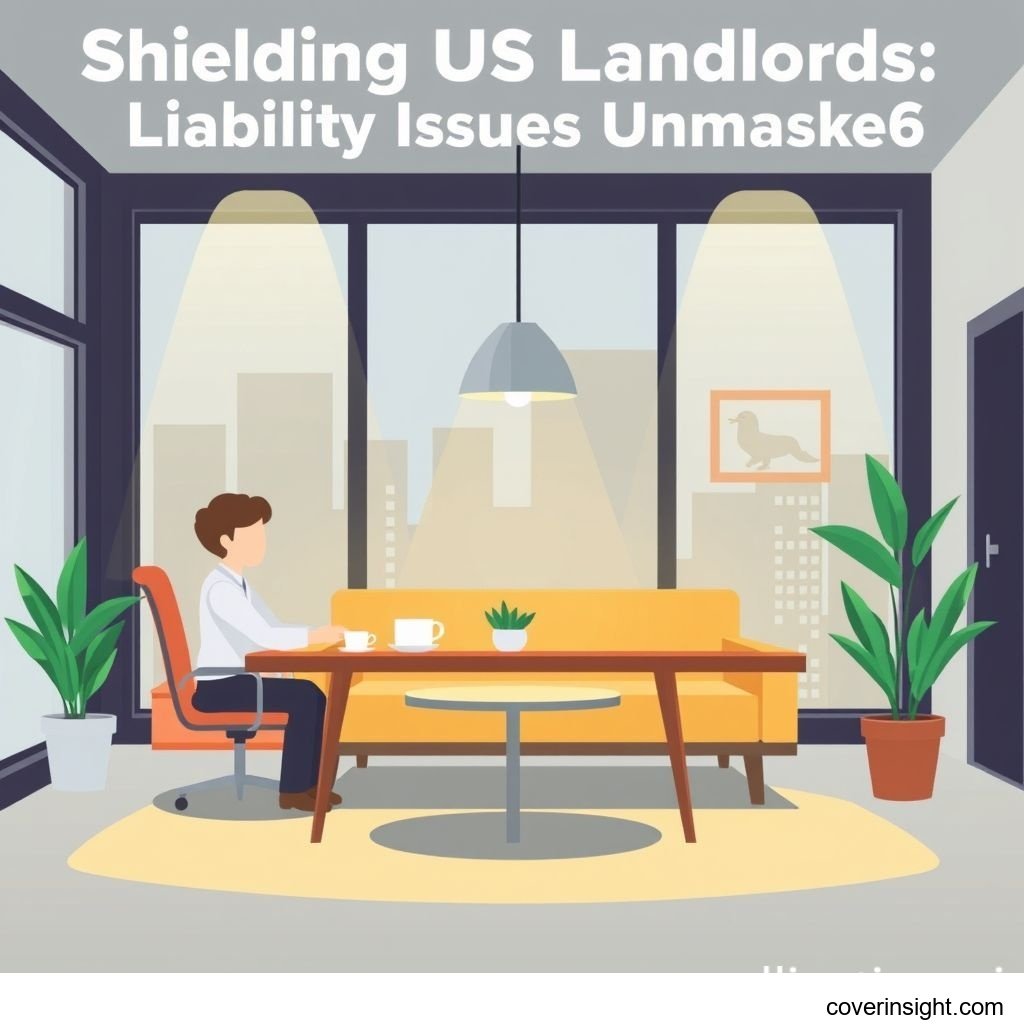Introduction
As 2025 unfolds, US landlords face an increasingly complex landscape of liability risks. Owning rental property isn't just about collecting rent; it's about safeguarding your assets from a myriad of potential claims, ranging from tenant injuries to property damage caused by negligence. Without robust protection, a single lawsuit could wipe out years of hard-earned equity, making it paramount for property owners to understand and mitigate these exposures. The stakes are high, and navigating the nuances of landlord liability insurance has become more critical than ever to ensure your investment remains secure.
Coverage Details
Understanding what your landlord liability policy covers—and what it doesn't—is crucial. This isn't just a piece of paper; it's your financial shield.
What’s Included
Typically, a comprehensive landlord liability policy will cover legal expenses and damages if someone is injured on your rental property and you are found responsible. This includes slips, falls, and other accidents. It can also extend to property damage caused by your negligence, such as if a faulty repair leads to a leak that damages a tenant's belongings. Furthermore, coverage often includes legal costs for defending against lawsuits, whether you win or lose. Some policies even offer "personal injury" coverage, which can protect against claims like wrongful eviction, slander, or libel, a growing concern in the digital age. For a broader perspective on protective measures, you might explore general Insurance Resources Global.
Common Exclusions
However, not everything is covered. Common exclusions usually involve intentional acts by the landlord, damage resulting from neglect (like failing to address a known hazard for an extended period), or damages related to war, nuclear hazards, or natural disasters that fall outside typical peril coverage (e.g., floods or earthquakes usually require separate policies). Also, maintenance issues that arise from regular wear and tear are generally your responsibility and not covered by liability. It's also worth noting that while you might research personal health coverage via sites like Healthcare.gov for your own needs, such platforms don't cover property-related liabilities for landlords.
Cost Analysis
The price tag on peace of mind varies, but understanding the factors at play can help you budget effectively.
Price Factors
Several elements influence the premium for landlord liability insurance. The location of your property plays a significant role; a rental in a high-crime area or a region prone to natural disasters might see higher rates. The type of property (single-family home, multi-unit dwelling, commercial space), its age, and construction materials also impact cost. Your claims history, the level of coverage you choose, and even your credit score can affect premiums. For instance, data from the National Association of Realtors indicated a slight uptick in landlord insurance costs in some metropolitan areas in 2023-2024, reflecting increased claims frequency.
Saving Tips
To potentially lower your premiums, consider bundling your landlord policy with other insurance, like your primary homeowners' or auto insurance. Increasing your deductible can significantly reduce your monthly payments, though it means you'll pay more out-of-pocket if a claim arises. Implementing safety measures, such as installing security systems, smoke detectors, and ensuring property maintenance is up-to-date, can also lead to discounts. Additionally, maintaining a good credit score and a claim-free history will work in your favor. Regular reviews of your policy with an agent can also uncover opportunities for savings. For more localized advice, consulting your State Insurance Departments website can provide region-specific tips and regulations.
FAQs
How much does landlord liability insurance cost?
The cost can vary widely, typically ranging from a few hundred dollars to over a thousand dollars annually per property. Factors like location, property type, coverage limits, and your claims history heavily influence the final premium.
What affects premiums?
Premiums are affected by your property's location and age, the type of rental (e.g., single-family vs. multi-unit), the policy's coverage limits and deductibles, your claims history, and your credit score.
Is it mandatory?
While landlord liability insurance isn't universally mandated by law in every state, most mortgage lenders will require it as a condition of your loan. More importantly, it's a non-negotiable safeguard for your assets, even if not legally required.
How to choose?
Choosing the right policy involves assessing your property's specific risks, comparing quotes from multiple providers, understanding what each policy includes and excludes, and considering your budget. Don't just go for the cheapest option; ensure it provides adequate coverage. Reviewing resources like those found on US Insurance Home can offer valuable guidance.
Consequences of no coverage?
Going without landlord liability coverage is playing with fire. A single tenant injury claim, property damage lawsuit, or even a wrongful eviction dispute could result in massive legal fees, settlements, and damages that you would have to pay entirely out of pocket. This could lead to asset forfeiture, bankruptcy, or the forced sale of your rental property, potentially destroying your financial future. Consider the case of a landlord in Oregon who faced a multi-million dollar lawsuit after a tenant suffered a severe injury due to a faulty staircase railing. Despite arguing the tenant's own negligence, the landlord was held partially liable due to inadequate maintenance records. Without sufficient liability coverage, their entire portfolio of properties was at risk, highlighting the dire consequences of underinsurance.
Author Insight & Experience
Based on my experience as someone deeply involved in the US real estate market, I've seen firsthand how a single, unforeseen incident can upend a landlord's financial stability. It's not just about the big, dramatic accidents; sometimes, it's the seemingly minor slip-and-fall that escalates into a complex legal battle. Many landlords, particularly new ones, operate under the misconception that their standard homeowners' policy will suffice, only to learn the hard way that it typically doesn't cover rental activities. My advice is always to treat your rental property as a genuine business. Just like any other enterprise, it requires strategic risk management. Don't wait until disaster strikes to realize your coverage is lacking. A proactive approach to liability insurance isn't an expense; it's an investment in the longevity and security of your valuable assets.








Comments